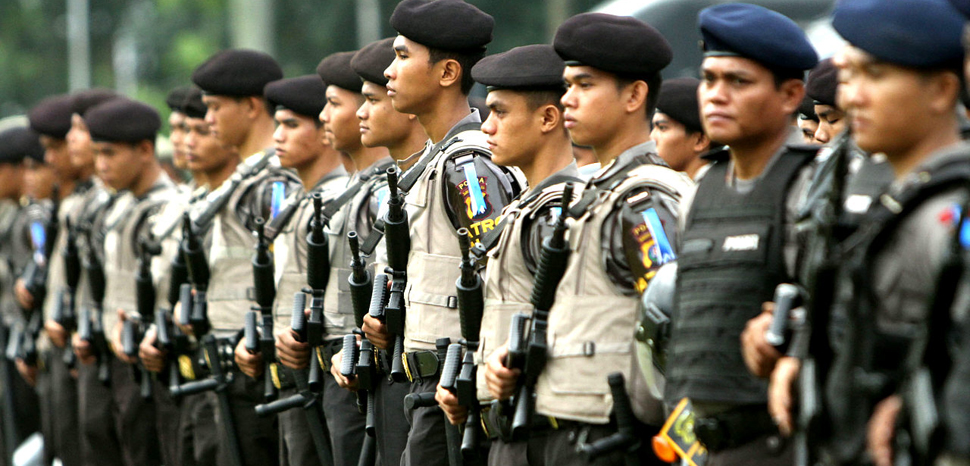In the mid-morning of 28 March, worshippers filled the Sacred Heart of Jesus Cathedral in Makassar—the largest city on the Indonesian island of Sulawesi—for a Palm Sunday service marking the start of the Holy Week leading up to Easter. At 10.30am, just as mass was ending, the force of a powerful explosion ripped through a side entrance to the church, injuring 20 people. No churchgoers were killed, but found among the debris were the body parts of two people who had not attended the service that morning—they were Islamist suicide bombers, who had pulled up on a motorbike and detonated their device.
Authorities said the attackers, later revealed to be a husband and wife, were affiliated to local militant group Jamaah Ansharut Daulah (JAD). Indonesian president Joko Widodo—leader of the world’s largest Muslim-majority nation—condemned the assault as an “act of terror” that went against Islamic values.
Just three days after the bombing, on 31 March, a woman radicalized by ISIS ideology opened fire in a “lone wolf” attack before being shot dead by police officers at the headquarters of the National Police in Jakarta. This led to fears of repeat attacks over Easter, which fortunately did not materialize; yet the attacks last month were among the most serious in Indonesia since a spate of suicide bombings in the East Javan city of Surabaya in May 2018, which killed scores of civilians. Like the Makassar attack, those blasts were perpetrated by families of bombers linked to JAD. Is the militant threat now rising again?




